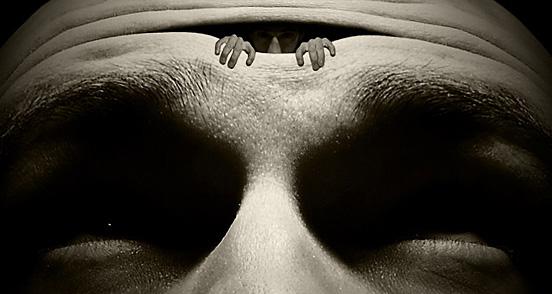Alter-ego - What is it in psychology?
The ego is all that we are not really, this is our false essence that is in constant search for something, something wants something in something doubts, is afraid and constantly complex. Our second "I" consists of our beliefs, beliefs, doubts, hidden fears and desires. This is our uncontrollable mind that constantly criticizes and condemns. Subconscious, which decides, good or bad, like it or dislike. There is also such a concept in psychology as Alter-Ego. That hidden second person, personality inside personality. Alter-ego manifests itself in a specific environment or under the influence of any external or internal factors.
Definition of concept
Alter-Ego Psychology (Alter Ego - "Other I" translated from the Latin language) calls a real or fictional alternative essence of a person. It can be absolute any person or image: a pseudonym and associated prototype, governor. In addition, in a person may not be alone, but several personalities that appeared as a result of a mental disorder.
Which depends on our alter-ego
What is this - alter-ego? What does it give us and what depends on it? It is the ego that determines what we want from life: love, material benefits, beauty, health, and so on. All these desires give rise to permanent suffering, because there are no limit to our requests. While we compare ourselves with your alter-ego, we do not see the reality of what it is in reality. Real and real is death for our false hidden entity. It is for this reason that our altern ego does everything possible to escape from what is happening here and now. At the moments when the mind is silent when we are in the present time, our ego is dissolved, and in this moment we become those who are actually we are.

False human essence - "I"
Depending on the context, the word "I" personifies or the deepest truth, or a huge mistake. This word is inherently the most consumed together with its derivatives - "me", "mine", "me" and so on. At the same time, it is one of those words that are in a strongest misconception. The word "I" within the usual daily use in speech initially indicates the incorrect perception of the essence, which you are. That is, Alter-Ego. What this word personifies an imaginary sense of personality, not everyone understands.

Having a gift to feel the very essence of the reality of space and time Albert Einstein called this false perception of himself and his essence "optical deception of sight." In the future, this imaginary "I" is accepted for the starting point for subsequent incorrect interpretations of reality. Alter-Ego is that the basis on which the relationship between the relationship and interaction of mental activity is being built. And as a result, reality becomes only a reflection of the starting illusion.
Where the term "alter-ego" is used
Sometimes the term "alter-ego" can be found in the literature and creative work when describing characters whose images are similar to the author or among themselves. For example, one of the heroes of several films Antoine Duaneel is an alter-ego of the Creator and the scriptwriter of the film - Francois Treiffo.

The expression "Alter-Ego" (the passage of the game with the same name, as they say, is quite exciting) was first used by the Greek philosopher Zeno Kythius, who lived in the IV-III centuries BC. e. It received its distribution due to the tradition adopted in some European states in past centuries. When the ruler passed his power to the successor, he gave him the title of the second "I" of the king - "Alter-Ego Regis". It is believed that such a tradition arose in Sicily.



